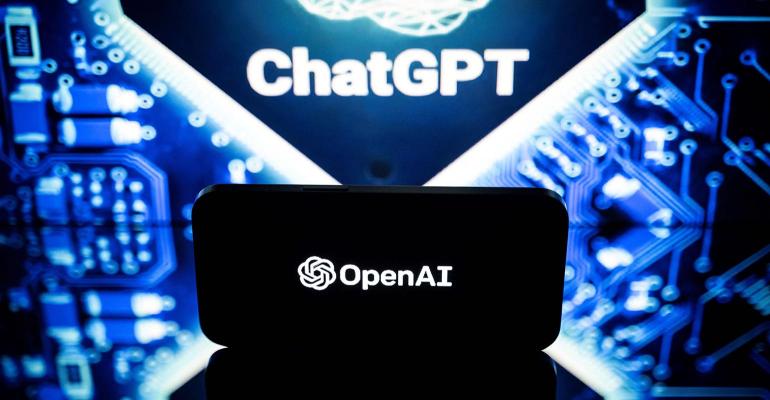Three divergent themes dominated the financial technology space last year—all taking place outside of its control. There was extreme market volatility, born of significant increases in inflation and exacerbated by global central bankers trying to slow its rise, the largest generational wealth transfer in history and incredible advancements in artificial intelligence, most notably demonstrated by the OpenAI organization.
The simultaneous impact of those disparate issues on the wealth management industry may be the most significant coincidence in more than a generation.
The wealth industry is notorious for its archaic processes, passive, unaware investors and advisors overwhelmed by technology and operational inefficiencies, leaving the latter very little time to understand their clients or share advice. Added to this, financial advisors now face remarkably higher demand for engagement due to the volatility in investment portfolio performance, all while attempting to prepare for the “Great Wealth Transfer” of an estimated $68 trillion from baby boomers to younger generations. When added to the aging population of financial advisors, the lack of qualified back-office staff to support this surge in demand and exacerbated by higher operating costs, the table is set for nothing short of a fundamental rethinking and reorganization of the industry itself.
Movie Magic Meets AI Reality
OpenAI project’s new sentient-like chatbot and the underlying technologies (read large language models) represented a giant leap in natural language processing by mimicking human conversations. The program emphasized dialogue more in its automated responses, demonstrating how industries can use the technology to create customized “personal assistants” for every client.
One of the most interesting features of ChatGPT and other similar models in my opinion is its language-generation capability. While mimicking intelligence, this single functionality helps to simplify interfaces (think advisor workstations, portfolio management or CRMs), and bring conversations back to the center of every business. Also individually, most of us spend a ton of our time generating content and communicating our ideas. Language generation capabilities enable us to increase our efficiency manyfold.
Understanding human intent is another capability that I believe these algorithms have taken to the next level. Never mind if it's learning huge patterns to simulate understanding, this capability can get us closer to having a true assistant that just gets things done.
For years, technologists have promised that the next advancement would be revolutionary, only to create disappointed when "revolutionary" turned out to be mostly hype or a minor improvement to current tools. And today, we still see an incredible gap between the potential in OpenAI’s recent advancements in its ChatGPT technology and the impact they can provide due to the relative infancy of advanced chatbots and the dearth of solutions providers delivering AI-enabled products for wealth management firms. It’s valid to question my fervent assertion that this advancement will revolutionize the industry.
A Reimagined Wealth Experience
These technological advancements couldn’t have come at a more opportune moment for an overburdened and dated wealth management industry—and could change the game if applied strategically and with the proper support.
AI-enabled digital assistants have the potential to serve as advisor co-pilots, assisting clients as they cruise through the bread-and-butter process lifecycle from prospecting, planning, onboarding, client meetings and client management operations, thereby transforming today’s broken experiences and manual efforts into a seamless, intuitive Amazon- or Uber-like experience for all stakeholders. Just like how you would ask your digital home assistant to “switch off the kitchen lights,” you can now interact with your Advisor Assistant to set up an RMD distribution for a client or initiate a simple beneficiary change.
The underlying demand for this kind of technological solution is uncharted, especially with trillions of dollars on the verge of transfer between generations, a complex and shaky financial and economic environment terrifying investors, and thousands of financial advisors on the precipice of retirement.
A Few Notes of Caution
However, one has to bear in mind some of the limitations of this technology, especially when applied in the wealth management space. The current foundational models do not yield much control to users to fine-tune and correct specific issues. Second, the models offer no traceability regarding the decision-making process, which can make it harder for a user to understand why a particular response is trustworthy. This can also raise additional questions about giving due credit to the information collected from different sources. Additionally, the wealth industry thrives on an enormous number of regulatory policies and processes and contextualization/verticalization is necessary for an AI model to operate effectively and to become useful. A sense of time is another crucial element missing from the experience. Particularly important if you rely on ChatGPT to help you make investment decisions, the concept of time is vital. Finally, and perhaps critically for this industry, it’s not yet possible to teach ChatGPT or similar algorithms a particular set of specific operational steps to carry out a user intent.
These challenges are not insurmountable, particularly if these AI foundational models are combined with the proper industry knowledge graphs. Together, this combination can put the wealth management industry on the precipice of a blockbuster event.
The question becomes how wealth management firms and advisors take advantage of these developments to enhance productivity and client services. We find ourselves at an inflection point: This technology is ready. Is our industry?
Sindhu Joseph is CEO and co-founder of CogniCor. She holds a Ph.D. in AI, co-authored six patents, and is a speaker on topics around Enterprise AI and ethical AI.





